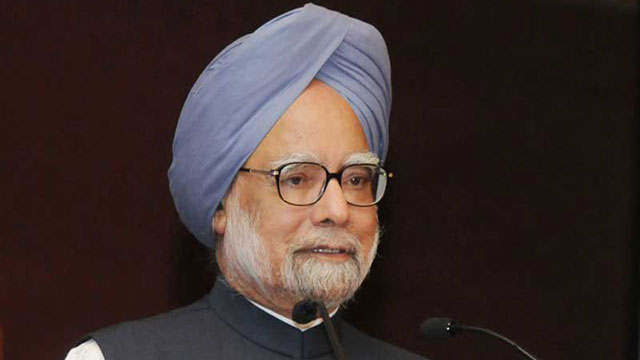Prime Minister Manmohan Singh said he was satisfied with the results and the visits had served their purpose.
Returning home on Thursday after a five-day trip to Russia and China, where he inked a slew of agreements, including a key pact with Beijing to reduce tensions on the disputed border, Prime Minister Manmohan Singh said he was “satisfied with the results” and the visits had “served their purpose”.
In his Russia visit, from Oct 20-22, the prime minister attended the 14th India-Russia Annual Summit with President Vladimir Putin. He has described Russia as a “key strategic partner in many areas, including defence, energy and trade”.
The visit coincided with the Russian-built first reactor at the Kudankulam Nuclear Power Plant in Tamil Nadu getting connected to the electricity grid and producing 300 MW of power.
The second unit is to go critical by the first half of 2014, while both sides said they would push ahead with clinching the commercial negotiations for the third and fourth units that have currently got stuck on India’s civil nuclear liability law.
Both India and Russia also decided to enhance energy cooperation, and set up a joint study group to examine the possibility of directly transporting hydrocarbons to India through the land route from Russia.
Regional and international issues were also discussed by Prime Minister Singh and President Putin. The summit was the 10th one that Manmohan Singh was attending since it began in 2000 and the fifth he was attending in Moscow.
On the second leg of his tour in Beijing, both sides inked nine agreements, including a key border pact to restore peace and tranquillity on the border as Manmohan Singh and his Chinese counterpart Li Keqiang held talks.
The Border Defence Cooperation Agreement, which was in the pipeline ever since the April-May standoff between their troops in Ladakh in Jammu and Kashmir, aims to reduce and tackle face-off situations on the over 4,000-km boundary.
Both sides also inked a major agreement on sharing information on transborder rivers, which the prime minister described as an incremental progress.
According to the agreement, China is to release hydrological data on the Brahmaputra river to India for 15 more days and also discuss “other issues”.
The prime minister said China has “recognised that the behaviour of the trans-border river system is of interest to all riparian states. So, our concerns have been put on the table”.
The prime minister also raised the issue of China issuing stapled visas to people from Arunachal Pradesh, the adverse trade balance and China’s proposal to build nuclear reactors in Pakistan.
On Thursday, he gave a lecture at the Central Party School, a rare honour, and attended a luncheon banquet hosted by former Chinese premier Wen Jiabao.
-IANS





